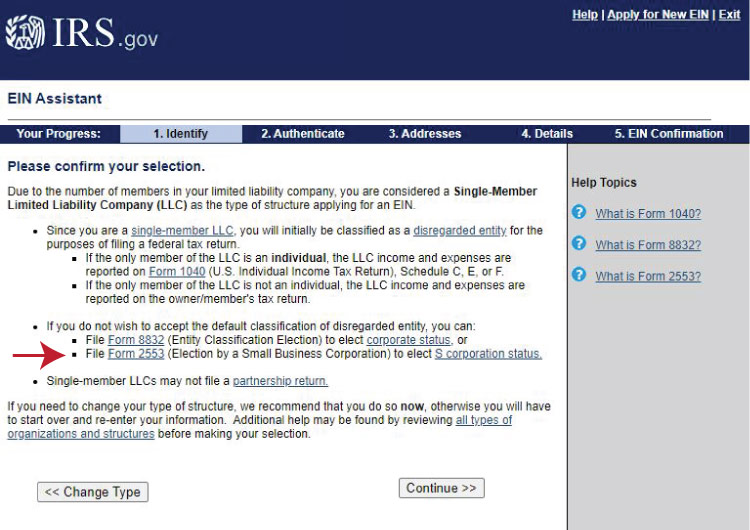How to Start an S Corp in Alaska
Forming an S corporation (S corp) in Alaska can be a smart way to reduce your tax burden, depending on your business’s financial profile.
This guide will walk you through the steps to create an S corp in Alaska and help you determine if it’s the best option for your company.
Read on to get started and see how an Alaska S corp could benefit your business.
Pro Tip: Get a free consultation with a tax professional to determine if an S corp is right for you.

Factors to Consider Before Starting an S Corp in Alaska
Before forming an S corp, you have to consider the following factors:
- Is an S corporation the best strategy for your business?
- S corporation restrictions
- Are S corp tax advantages right for you?
Is an S Corporation the Best Strategy for Your Business?
For help with choosing the right structure for your business, visit our Choosing a Business Structure guide.
S Corporation Restrictions
S corps have several restrictions, such as being limited to one class of stock and 100 shareholders. Read our What Is an S Corporation guide for full details.
Are S Corp Tax Advantages Right for You?
An S corporation is a tax designation that can be elected by a limited liability company (LLC) or corporation. With an S corp, business owners are considered employees of the company and must receive a reasonable salary. Since all S corps technically have employees, the s corp must run payroll.
In order to benefit from an Alaska S corp tax designation, your business needs to make enough money to offset payroll expenses. Furthermore, S corps are beneficial for business owners who take large distributions in addition to their salary.
To learn more about the tax advantages of an S corp, read our LLC vs. S corp guide and take a look at our S Corp tax calculator.
Pro Tip: Get a free consultation with a tax professional to determine if an S corp is right for you.
How to Form an Alaska S Corp
There are two main ways to start an S corp:
- By forming an LLC and electing S corp tax status from the IRS when you request your employee identification number (EIN)
- By forming a corporation and electing S corp status from the IRS
We recommend forming an LLC because it’s simpler and more cost-effective.
Not in Alaska? Check out our other How to Start an S corp guides to learn more.
Recommended: If you have an existing LLC, visit our How to Convert an LLC to S Corp guide.
Steps for Forming an LLC and Electing S Corp Status in Alaska
Starting an Alaska LLC and electing S corp tax status is easy. You can use our guides to start an LLC with the S corp status yourself, or you can hire a service provider like Northwest to guide you through this process.
There are five basic steps to start an LLC and elect S corp status:
Step 1: Name Your LLC
Step 2: Choose a Registered Agent
Step 3: File the Articles of Organization
Step 4: Create an Operating Agreement
Step 5: Get an EIN and File Form 2553 to Elect S Corp Tax Status
Step 1: Name Your LLC
Choosing a company name is the first and most important step in starting your LLC in Alaska.
Be sure to choose a name that complies with Alaska naming requirements and is easily searchable by potential clients.
1. Follow the naming guidelines for an Alaska LLC:
- Your name must include the phrase “limited liability company” or one of its abbreviations (LLC or L.L.C.). “Limited” can be abbreviated “Ltd.,” and “company” can be abbreviated “co.”
- Your name cannot include words that could confuse your LLC with a government agency or unit (FBI, Treasury, State Department, etc.).
- A business name may not contain a word with professional licensing restrictions, such as “Engineer,” unless the business has the appropriate professional license.
- Entity names that mislead regarding corporate purposes are not allowed. For example, if you own an oil company, you couldn’t name your business “Solar Power Visionaries, LLC”.
- The name of a city, borough, or village may be used in an LLC’s name; however, the name may not contain the word “city,” “borough,” or “village” or otherwise imply that the company is a municipality.
- Your name must be distinguishable from any other business name registered with the state. You can find more information about how to determine a distinguishable business name in Alaska on the Department of Commerce, Community, and Economic Development website.
You can also read the Alaska state statutes about LLC naming guidelines for more information.
2. Is the name available in Alaska? You can search the corporations database on the Alaska Department of Commerce, Community, and Economic Development website to see if your desired LLC name is available.
3. Is the URL available? We recommend checking to see if your business name is available as a web domain. Even if you don’t plan to create a business website today, you may want to buy the URL in order to prevent others from acquiring it.
Step 2: Choose Your Alaska Registered Agent
You must elect a registered agent for your Alaska LLC.
An LLC registered agent will accept legal documents and tax notices on your LLC’s behalf. You will list your registered agent when you file your LLC’s Articles of Organization.
Many business owners choose to hire a registered agent service. Many of these services will form your LLC for a small fee and include the first year of registered agent services for free.
Step 3: File the Alaska LLC Articles of Organization
The Alaska Articles of Organization is used to officially register an LLC.
File Your Alaska Articles of Organization
OPTION 1: File Online With the Alaska Department of Commerce, Community, and Economic Development
File Online– OR –
OPTION 2: File by Mail, by Fax, or in Person
Download FormState Filing Cost: $250, payable to the State of Alaska/CBPL (Nonrefundable)
Mailing Address:
State of Alaska Corporations Section
P.O. Box 110806
Juneau, AK 99811
Office Address:
333 Willoughby Ave., 9th Floor
State Office Building
Juneau, AK 99801-1770
Fax: (907) 465-2974
Step 4: Create an LLC Operating Agreement
An LLC operating agreement is a legal document that outlines the ownership and member duties of your LLC.
For more information, read our Alaska LLC Operating Agreement guide.
Our operating agreement tool is a free resource for business owners.
Step 5: Get an EIN and Complete Form 2553 on the IRS Website
An EIN is a number that is used by the US Internal Revenue Service (IRS) to identify and tax businesses. It is essentially a Social Security number for a business.
EINs are free when you apply directly with the IRS.
Elect S Corp Tax Status
During the online EIN application, the IRS will provide a link to Form 2553, the Election By a Small Business form.
Visit our Form 2553 Instructions guide for detailed help with completing the form.
This is the form to elect S corp tax status for your LLC:

Ready to start saving on your taxes?
We recommend using a formation service to start your Alaska S corp for you, so you can focus on the things that matter most — growing your business.
Keep Your Alaska S Corp Compliant
Once you have your Alaska S corp up and running, you’ll want to keep it in good standing by following state laws and guidelines.
File the BOI Report
The federal government requires that all S corporations (whether LLCs or corporations) file a Beneficial Ownership Information (BOI) report with the Financial Crimes Enforcement Network (FinCEN). This report is crucial for keeping federal records updated with details about who owns or controls your business.
You can file the BOI report through the FinCEN website.
Open a Dedicated Business Bank Account
In Alaska, maintaining a clear distinction between your personal and business finances is critical. A dedicated business bank account helps protect your LLC’s liability shield and ensures that your financial records are straightforward and compliant.
For options tailored to small businesses, check out our guide on the Best Banks for Small Business.
Obtain Necessary Alaska Business Licenses
All Alaska businesses need to have a business license to operate.
Read our Alaska Business License guide to get started.
Submit Your LLC Initial Report
In Alaska, S corporations must file an Initial Report within six months of incorporation. This report provides the state with essential information about your business and helps establish your company’s compliance status. Timely filing of this report is critical to avoid penalties.
You can file the Initial Report online at the Alaska Corporations Filing page.
File Your Alaska LLC Biennial Report
Your Alaska S corp must file an LLC biennial report with the Alaska Department of Commerce, Community, and Economic Development every other year.
The year you initially registered your business will dictate when you file your biennial report. If you filed your registration paperwork in an even-numbered year, for example, your biennial report is due by Jan. 2 in every even-numbered year. If you filed your registration paperwork in an odd-numbered year, however, your biennial report will be due by Jan. 2 in every odd-numbered year.
Visit our Alaska LLC Biennial Report guide for a step-by-step overview of the filing process.
Understand Alaska’s S Corp Tax Obligations
Alaska doesn’t levy a state income tax, which can be advantageous for S corporations. Your business may still need to comply with other tax obligations, however, such as federal taxes and Alaska’s corporate income tax (if applicable).
For more details and to manage your tax filings, visit the Alaska Department of Revenue’s Tax Division page.
Determine Local Sales Taxes
While Alaska doesn’t have a statewide sales tax, some municipalities do impose local sales taxes. If your business operates in one of these areas, you’ll need to register and comply with local sales tax requirements.
For information on local tax obligations, check with the relevant municipal authorities.
Start an Alaska S Corp FAQ
An S corporation (S corp) is a tax designation that an LLC or a corporation can elect.
No. The default taxes for an LLC and taxes for an S corp are not the same.
With an S corp, owners pay personal income tax and self-employment tax on a predetermined salary. They may then withdraw any remaining profits from the business as a “distribution,” which isn’t subject to self-employment tax.
With an LLC, all company profits pass through to the owners’ personal tax returns, and then the owners must pay personal income tax and self-employment tax on the entire amount.
S corp owners are required to earn a “reasonable” salary, which basically means a fair market rate based on the individual’s qualifications as well as their duties and responsibilities at the company. The purpose of this requirement is to prevent S corp owners from paying themselves an artificially low salary in order to pay less self-employment tax.
A distribution is a dividend that a shareholder/owner can take from the business profits that remain after a company pays all of its employee salaries. Shareholders must pay personal income tax on distributions, but distributions aren’t subject to self-employment tax.
LLCs and corporations that operate under a “doing business as” (DBA) name can choose the S corp election.
Oil and gas, fishing, tourism, and mining are the most prominent industries within Alaska. Businesses that can save money by electing S corp status tend to be the ones that choose this tax designation. S corps exist across many different industries.
The best state for your business is likely the state in which it’ll operate. However, Alaska’s 0% income tax rate makes it an attractive choice for business owners looking to save money on their taxes.